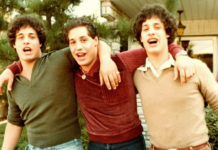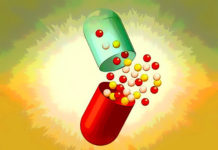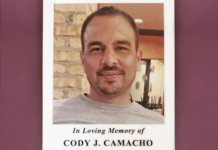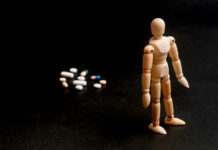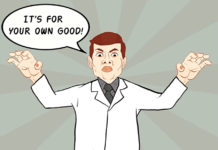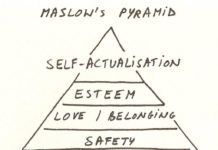Anatomy of an Industry: Commerce, Payments to Psychiatrists and Betrayal of the Public Good
Pharmaceutical companies paid psychiatrists $340 million from 2014 through 2020, corrupting every aspect of the testing and marketing of new psychiatric drugs.
Hegemonic Sanity and Suicide
The “good” suicide attempt survivor wakes up in a hospital bed bathed in beautiful natural light, surrounded by the people who love them most, and they realize that their thinking was flawed and all those unsolvable problems can actually be solved if they are just compliant with medication and therapy. And then there's the “bad” suicide attempter who is angry that they lived, who challenges the status quo.
“Three Identical Strangers” and the Nature-Nurture Debate
Three Identical Strangers is a riveting film describing the story of identical triplets separated at six months of age and reunited in early adulthood. Their story provides no evidence in support of the genetic side of the nature-nurture debate, but it does supply some evidence in favor of the environment.
Antidepressant-Induced Mania: When My Mind Became a Literal Hell
The amount of anxiety I felt on these medications — and for a couple of years after — was unfathomable. I felt as though I was trapped in an air-tight vat, constantly gasping for breath. And my thoughts were guided by my state of constant worry and panic.
Green Star Mother Demands Answers from VA Secretary
If the Veterans Administration is sincere in wanting to reduce veteran suicides, the first place to start is to collect information following these deaths to try to better understand the causes.
Suicide in the Age of Prozac
During the past twenty years, the American Foundation for Suicide Prevention and American psychiatry have adopted a "medicalized" approach to preventing suicide, claiming that antidepressants are protective against suicide. Yet, the suicide rate in the United States has increased 30% since 2000, a time of rising usage of antidepressants. A review of studies of the effects of mental health treatment and antidepressants on suicide reveals why this medicalized approach has not only failed, but pushed suicide rates higher.
Why Does a Parent Medicate a Child? An Interview with My Mother
When Brooke Siem was 15 years old, her father died. Her mother, Dee Barbash, sought help for her daughter that led to a prescription for a psychiatric drug. In this interview, they look back on that fateful decision.
My Story of Benzo Withdrawal and Activism
My story starts in 1976. I had a nervous breakdown whilst studying for my Accountancy Technician examination. I was then prescribed a series of benzodiazepine/anti depressant drugs for 5 years. I have been campaigning for the last 28 years at local, national and international level on this public health scandal and government cover-up. The following questions need to be asked to those responsible: Why have the doctors and psychiatrists ignored the 1988 Committee on Safety of Medicines Guidelines on the prescribing of benzodiazepines? Why are the same physicians making the same mistakes with the newer drugs?
The “Sick Enough” Paradox in Eating Disorder Treatment
I had internalized that not only would I be socially rewarded for starving myself, but also that I could only earn care by proving that I was sick enough to meet their criteria.
Psychiatry, Fraud, and the Case for a Class-Action Lawsuit
For decades, psychiatry committed medical fraud when it told the public that antidepressants fixed a chemical imbalance in the brain.
When Homosexuality Came Out (of the DSM)
With a diagnosis of schizophrenia, if internalized, comes the erosion of personhood, lowered self-esteem, shattered dreams, and a sense of disenchantment. The psychiatrist Richard Warner has even suggested that those who reject the diagnosis of severe mental illness may have better outcomes as they retain the right to construct their own narrative of personhood and define what really matters for them. Despite public education campaigns (or perhaps because of them), the stigma of mental illness is as enduring as it was 50 years ago.
My Red October – An Army Veteran’s Crucible to Recovery
After my VA mental health team prescribed Prozac, I began experiencing rapidly escalating behavioral changes. The drug was never considered as a potential cause.
Jordan B. Peterson’s Support of Corporal Punishment for Children: A Critique
In his book 12 Rules for Life, supposedly based on "cutting-edge research," Jordan Peterson attempts to justify the hitting of children as a form of discipline. But Peterson does so without citing a single study to support his view. In fact, this entire section of the book is bereft of any reference to any research supporting the effectiveness of corporal punishment.
An Atheist’s Prayer by Morgan Stewart
Psychiatry is an atheist’s prayer, absolving the faithful of human desire
It is miracle cures, sinners who have lost their way, and a holy book...
Anti-Psychiatry
From time to time, I find myself feeling the urge to articulate my views and delineate them from people with whom I may be identified. Rightly or wrongly, I feel that way with this website. Although the goal is to have wide ranging goals there is nevertheless a distinct perspective represented here. I feel the urge to articulate where I part ways with some of the views expressed here. I do this in the spirit of discourse. I am not certain I am correct. I may someday change my mind. I am just expressing my perspective.
Reflections on Being a Therapist
Three-and-a-half years ago I quit my career as a psychotherapist. I’d done it for ten years in New York City and had given it my all. It was a career that chose me, loudly, when I was 27 years old. I learned a huge amount from it and I believe I was helpful to a lot of people. It also represented a vital stage in my life. But then the time came to leave. That also came as a sort of revelation.
Withdrawal from ADHD Medications
This guide to the scientific literature on withdrawal from ADHD drugs provides a review of animal studies, withdrawal syndromes,
and possible tapering protocols.
Q&A: How Can We See ADHD From Another Angle, and What Can We Do...
We all want to help our kids or our students, and sometimes finding the right key to unlock a child’s gifts is a matter of time, patience, trial, and error.
When ‘For Your Own Good’ Actually Means ‘For My Own Good’
“For your own good” is oppressive. Embedded in that four-word phrase is the idea that each of us doesn’t understand who we are or what we need. Someone else is the expert. Someone else has the privilege to hold all the answers, and if those answers don't work for us then somehow it's our fault.
Psychologist Debunks Common Misconceptions of Maslow’s Hierarchy
Utilizing Maslow’s published books and essays, psychologist William Compton delineates common myths and attempts to respond to them.
Everyone’s Afraid of an Angry Woman: Honoring Sinéad O’Connor
In her tragic passing, I choose to honor her by raising up these words she said, by hearing and believing them.
Einstein, Social Justice and The New Relativity
To create his theory of relativity, Einstein had to see things differently. He used imagination and empathy to come to know a new 'reality' of existence. In this essay, we delve deeply into the nature of human experiences that lead to public concern and discover ourselves in a whole new realm.
Embracing the Shadow—Charlie Morley on Lucid Dreaming as Therapy
On the Mad in America podcast, we hear about the potential of lucid dreaming therapy to aid those struggling with post-traumatic stress.
Exploding the “Separated-at-Birth” Twin Study Myth
Supporters of the nature (genetic) side of the “nature versus nurture” debate often cite studies of “reared-apart” or “separated” MZ twin pairs (identical, monozygotic) in support of their positions. In this article I present evidence that, in fact, most studied pairs of this type do not qualify as reared-apart or separated twins.
Suicidal Tendencies, Part I: I’m Suicidal Because I’m Mentally Ill Because I’m Suicidal
I can’t even begin to count the number of times I’ve heard “Research has found that about 90% of individuals who die by suicide experience mental illness.” Here’s what I believe it means in far too many instances: It’s an 'out.' It’s an easy answer that absolves us all of blame. If someone has a ‘sickness in the brain,’ then it doesn’t have to be our fault or even necessarily our concern.



